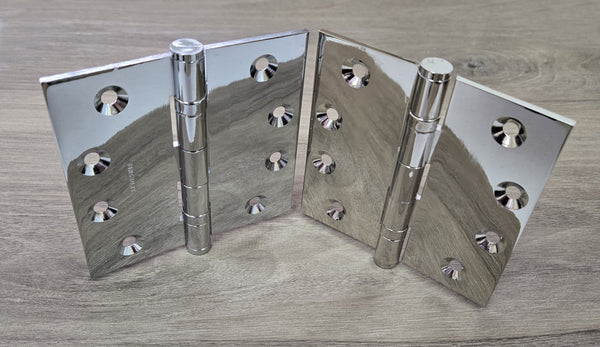In the realm of commercial construction, every detail matters. One such detail, often overlooked but critically important, is the type of door closers installed. They might not be your primary concern, but the choice and quantity of door closers can significantly affect the functionality and longevity of your doors.
What is a Hydraulic Door Closer?
A hydraulic door closer, a common sight in commercial settings, is a mechanical device that ensures a door closes properly after being opened. It's typically composed of a spring and a hydraulic damper. The spring stores energy when the door is opened, and this stored energy is gradually released by the hydraulic damper to close the door in a controlled manner.
This device is highly versatile and comes in a variety of forms, including surface-mounted, concealed in frame, and concealed in door. Each type has its own set of advantages, but they all serve the same fundamental purpose – to ensure doors close securely and consistently.
Why Choose a Hydraulic Door Closer?
Hydraulic door closers offer several advantages over other types:
- Universal Application: These devices are well-suited for most doors, making them a universally accepted choice.
- Smooth Operation: Thanks to the hydraulic mechanism, door closers ensure a smooth and quiet door closing operation.
- Adjustable Settings: Most hydraulic door closers allow for adjustments to the closing speed and force, providing added convenience and customization.
- Durability: The hydraulic mechanism is known for its durability and longevity, making it a cost-effective choice in the long run.
Buying in Bulk: A Cost-Effective Strategy
For commercial contractors, purchasing door closers in bulk rather than individually can lead to significant savings. Here's why:
- Economical: Buying in bulk is generally cheaper per unit, reducing the overall cost.
- Convenience: It eliminates the need to frequently reorder, saving time and effort.
- Availability: Having a surplus of door closers on hand can be beneficial in case of unexpected replacements or new installations.
Hydraulic vs. Pneumatic Door Closers: A Comparison
When comparing hydraulic door closers with their pneumatic counterparts, several factors come into play:
- Closing Mechanism: Hydraulic door closers use a liquid-filled chamber to control the closing speed, while pneumatic ones use air pressure.
- Versatility: Both types can be used on a variety of doors, but hydraulic models are generally more versatile.
- Adjustability: Both types offer adjustable closing speed, but hydraulic models typically provide a greater range of adjustment.
- Noise Level: Hydraulic door closers are usually quieter than pneumatic ones.
While both types have their merits, hydraulic door closers often edge out due to their quiet operation, wider adjustability, and versatility.
Factors to Consider When Choosing Door Closers
- Door Size and Weight: The size and weight of the door influence the type of door closer required.
- Frequency of Use: Doors that are frequently opened and closed may require a more robust door closer.
- Installation Location: The location of the door (interior or exterior) can affect the type of door closer needed.
- Fire Safety Regulations: Some doors, especially fire doors, are required by law to have door closers installed.
Final Thoughts
Investing in bulk hydraulic door closers is a sound decision for commercial contractors. Not only do they provide reliable and smooth door operation, but they also prove to be cost-effective in the long run. Remember, the choice of door closer can significantly impact the safety, security, and operational efficiency of a building. So, make your choice wisely.



